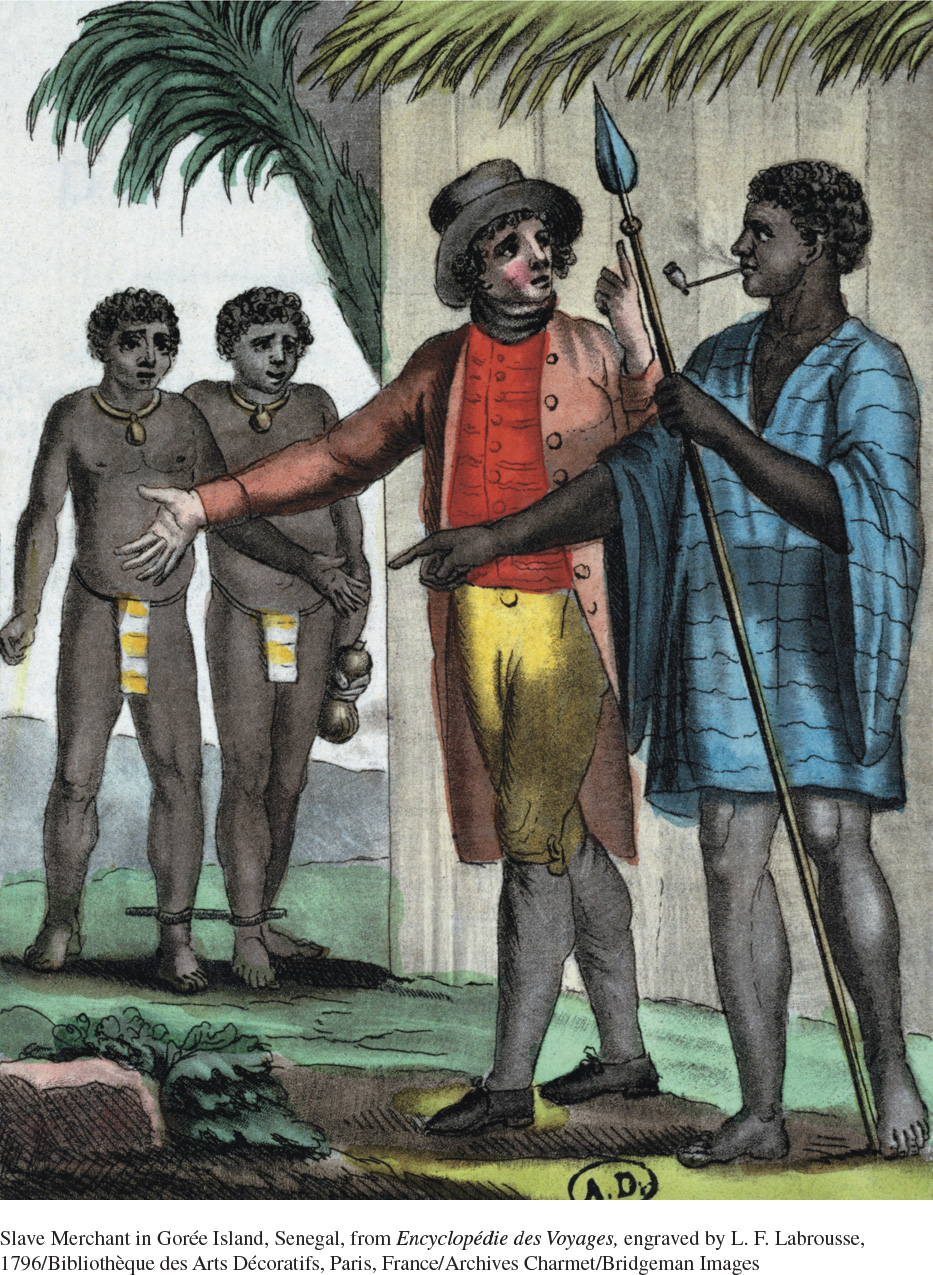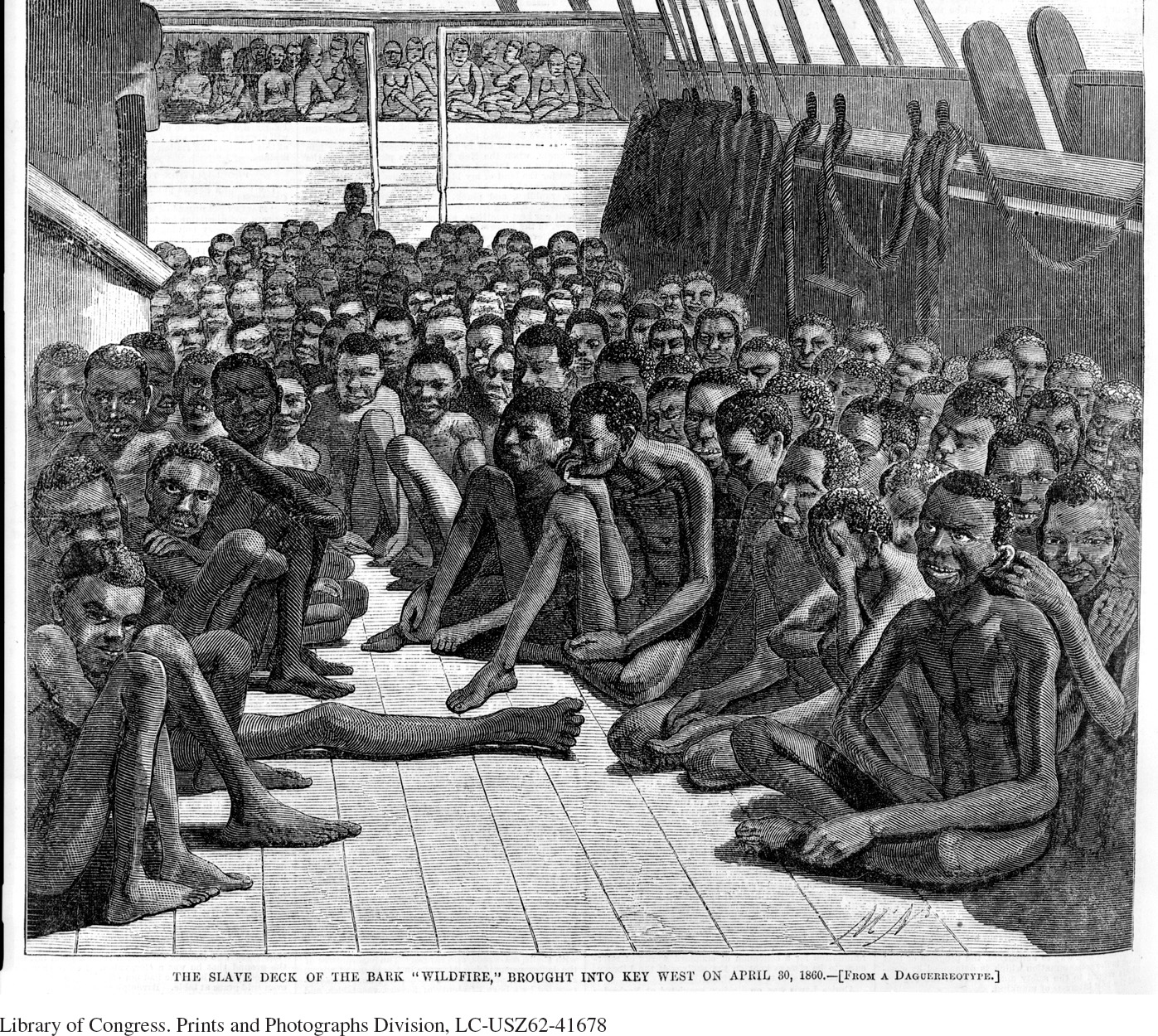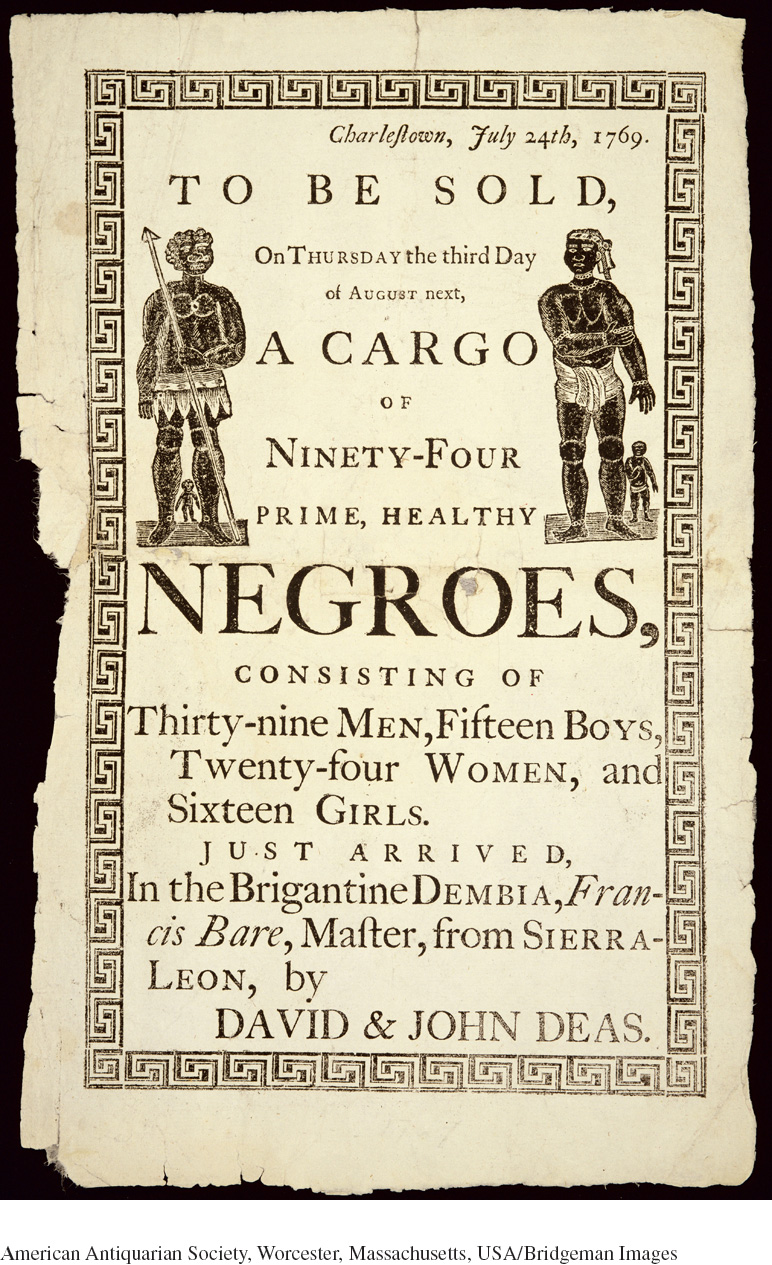Source 14.5: Images of the Slave Trade
Images of the slave trade abound, offering another perspective on the journey from freedom to slavery. Source 14.5A, a French engraving published in 1796 as part of an encyclopedic travel book, shows the sale of slaves at Gorée, a major slave-trading port in what is now Dakar in Senegal. A European merchant and an African slave trader negotiate the arrangement, while the shackled victims wait for their fate to be decided. Based on an early photograph, Source 14.5B is an engraving published in the popular American periodical Harper’s Weekly in 1860. It illustrates the Middle Passage by recording the enormously crowded conditions aboard a slave ship, which was captured before it could land its human cargo in Cuba. And Source 14.5C, a handbill advertising a slave auction in South Carolina in 1769, indicates what lay ahead for those who survived the Middle Passage.
Questions to consider as you examine the sources:
- What aspects of the documents in Sources 14.1 through 14.4 do these images illustrate?
- In what ways do images such as these provide an understanding of the slave trade beyond what written sources can convey? And what are their limitations as sources useful to historians?
Sale of Slaves in West Africa

Sale of Slaves in West AfricaSlave Merchant in Gorée Island, Senegal, from Encyclopédie des Voyages, engraved by L. F. Labrousse, 1796/Bibliothèque des Arts Décoratifs, Paris, France/Archives Charmet/Bridgeman Images

The Slave Ship WildfireLibrary of Congress. Prints and Photographs Division, LC-USZ62-41678
Advertisement for a Slave Auction in Charleston, SC

Advertisement for a Slave Auction in Charleston, SCAmerican Antiquarian Society, Worcester, Massachusetts, USA/Bridgeman Images


